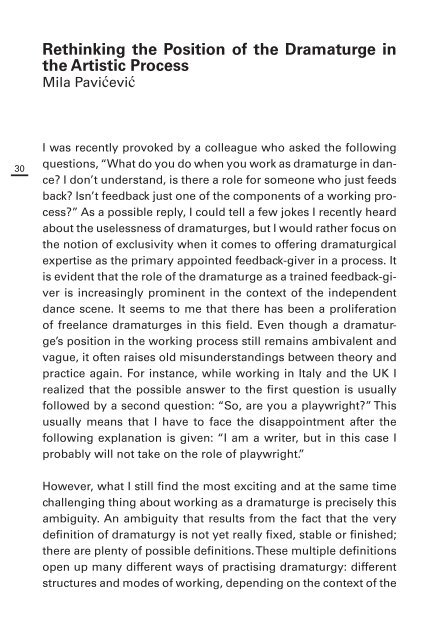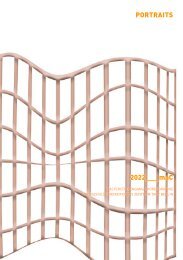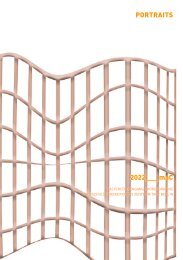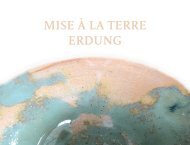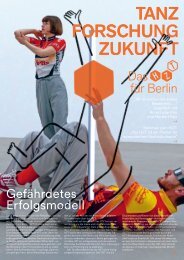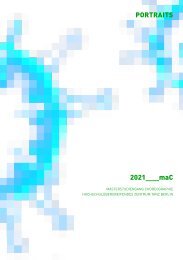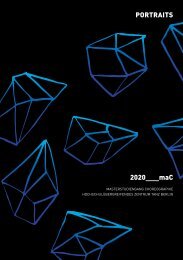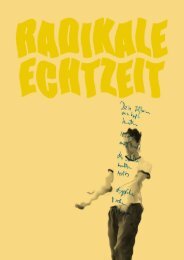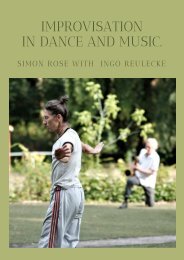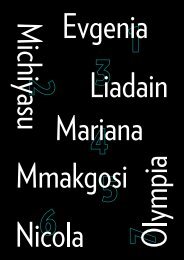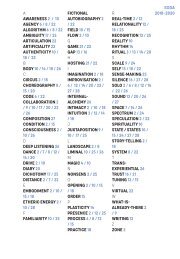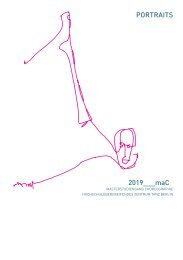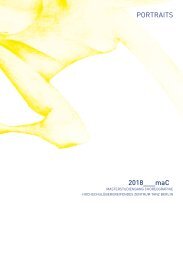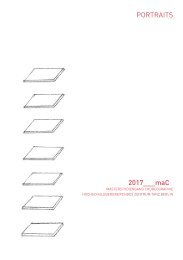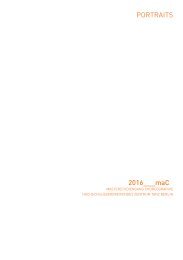Laboratory on Feedback in Artistic Processes 3
In its third edition the "Laboratory on Feedback in Artistic Processes" reflects on "Responses" within performing arts. The results of the previous Labs highlighted the need to take a closer look at the complexity and often subtle implications of feedback within the the artistic process itself. How do artist organise feedback and how do they process it? Who they want feedback from and what are its different roles? How can describe these relationships, and how does it shpae the artistic work? This booklet presents the different views on and experiences of feedback practices that were elaborated during the lab along the beforementioned questions and the insightfull contributions of its participants. Underpinning the following pages, three thematic fields have emerged: the impacts of feedback, feedback as a tool, and practicalities and contexts of feedback.
In its third edition the "Laboratory on Feedback in Artistic Processes" reflects on "Responses" within performing arts. The results of the previous Labs highlighted the need to take a closer look at the complexity and often subtle implications of feedback within the the artistic process itself. How do artist organise feedback and how do they process it? Who they want feedback from and what are its different roles? How can describe these relationships, and how does it shpae the artistic work?
This booklet presents the different views on and experiences of feedback practices that were elaborated during the lab along the beforementioned questions and the insightfull contributions of its participants. Underpinning the following pages, three thematic fields have emerged: the impacts of feedback, feedback as a tool, and practicalities and contexts of feedback.
Create successful ePaper yourself
Turn your PDF publications into a flip-book with our unique Google optimized e-Paper software.
Reth<strong>in</strong>k<strong>in</strong>g the Positi<strong>on</strong> of the Dramaturge <strong>in</strong><br />
the <strong>Artistic</strong> Process<br />
Mila Pavićević<br />
30<br />
I was recently provoked by a colleague who asked the follow<strong>in</strong>g<br />
questi<strong>on</strong>s, “What do you do when you work as dramaturge <strong>in</strong> dance?<br />
I d<strong>on</strong>’t understand, is there a role for some<strong>on</strong>e who just feeds<br />
back? Isn’t feedback just <strong>on</strong>e of the comp<strong>on</strong>ents of a work<strong>in</strong>g process?”<br />
As a possible reply, I could tell a few jokes I recently heard<br />
about the uselessness of dramaturges, but I would rather focus <strong>on</strong><br />
the noti<strong>on</strong> of exclusivity when it comes to offer<strong>in</strong>g dramaturgical<br />
expertise as the primary appo<strong>in</strong>ted feedback-giver <strong>in</strong> a process. It<br />
is evident that the role of the dramaturge as a tra<strong>in</strong>ed feedback-giver<br />
is <strong>in</strong>creas<strong>in</strong>gly prom<strong>in</strong>ent <strong>in</strong> the c<strong>on</strong>text of the <strong>in</strong>dependent<br />
dance scene. It seems to me that there has been a proliferati<strong>on</strong><br />
of freelance dramaturges <strong>in</strong> this field. Even though a dramaturge’s<br />
positi<strong>on</strong> <strong>in</strong> the work<strong>in</strong>g process still rema<strong>in</strong>s ambivalent and<br />
vague, it often raises old misunderstand<strong>in</strong>gs between theory and<br />
practice aga<strong>in</strong>. For <strong>in</strong>stance, while work<strong>in</strong>g <strong>in</strong> Italy and the UK I<br />
realized that the possible answer to the first questi<strong>on</strong> is usually<br />
followed by a sec<strong>on</strong>d questi<strong>on</strong>: “So, are you a playwright?” This<br />
usually means that I have to face the disappo<strong>in</strong>tment after the<br />
follow<strong>in</strong>g explanati<strong>on</strong> is given: “I am a writer, but <strong>in</strong> this case I<br />
probably will not take <strong>on</strong> the role of playwright.”<br />
However, what I still f<strong>in</strong>d the most excit<strong>in</strong>g and at the same time<br />
challeng<strong>in</strong>g th<strong>in</strong>g about work<strong>in</strong>g as a dramaturge is precisely this<br />
ambiguity. An ambiguity that results from the fact that the very<br />
def<strong>in</strong>iti<strong>on</strong> of dramaturgy is not yet really fixed, stable or f<strong>in</strong>ished;<br />
there are plenty of possible def<strong>in</strong>iti<strong>on</strong>s. These multiple def<strong>in</strong>iti<strong>on</strong>s<br />
open up many different ways of practis<strong>in</strong>g dramaturgy: different<br />
structures and modes of work<strong>in</strong>g, depend<strong>in</strong>g <strong>on</strong> the c<strong>on</strong>text of the


